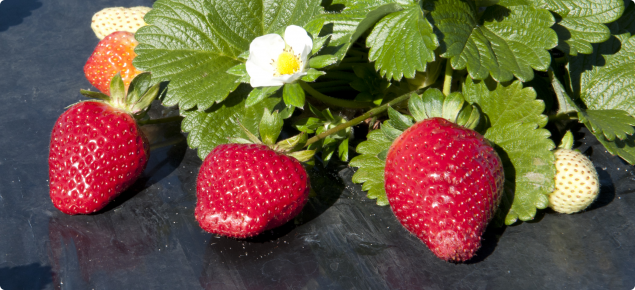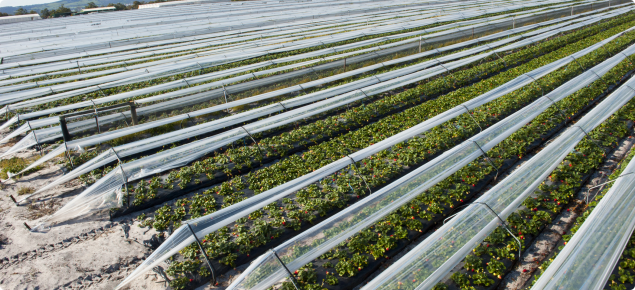Site selection
Strawberries are herbaceous plants, belonging to the family Rosaceae and are normally grown as an annual crop in Western Australia.
Almost any well drained soil will grow strawberries, although well drained loams with lots of organic matter are ideal. Strawberries grow best when soil pH is around 6.5, but will grow in the pH range 5.5 to 7.5.
A gentle slope with a northerly aspect will be beneficial for early season and winter cropping, but on colder, low lying properties the main season crop may be larger, and carry on later. Virgin land is preferred because pests, diseases and weeds are less troublesome.
Adequate water of excellent quality is required, as strawberries are very sensitive to salt damage. The salt content of water should be below 400mg/L (or about 75mS/m conductivity). A yield loss of 25% would be expected if water with 650mg/L (120mS/m) was used.
Roadside sales and pick-your-own harvesting can be profitable and may influence site choice. Most fruit is sold through the Canning Vale markets but some growers sell direct to supermarkets.
Large plantings should be near population centres, as labour for harvesting will be more readily available. Up to 40 people for three to four days a week may be needed to pick and pack a two hectare strawberry crop.
Land preparation
Eradicate all persistent weeds such as couch, kikuyu and sorrel either by repeated cultivation in dry conditions or by chemical means such as spraying with glyphosate during rapid growth. Deep plough and rotary-hoe the site several times to give a lump-free bed. Compost can be applied at this time and if pH correction is required this should be done using lime and/or dolomite. Use of raw poultry manure is banned around the Perth metropolitan area and in some other Shires on the Swan Coastal Plain, as it breeds stable fly.





